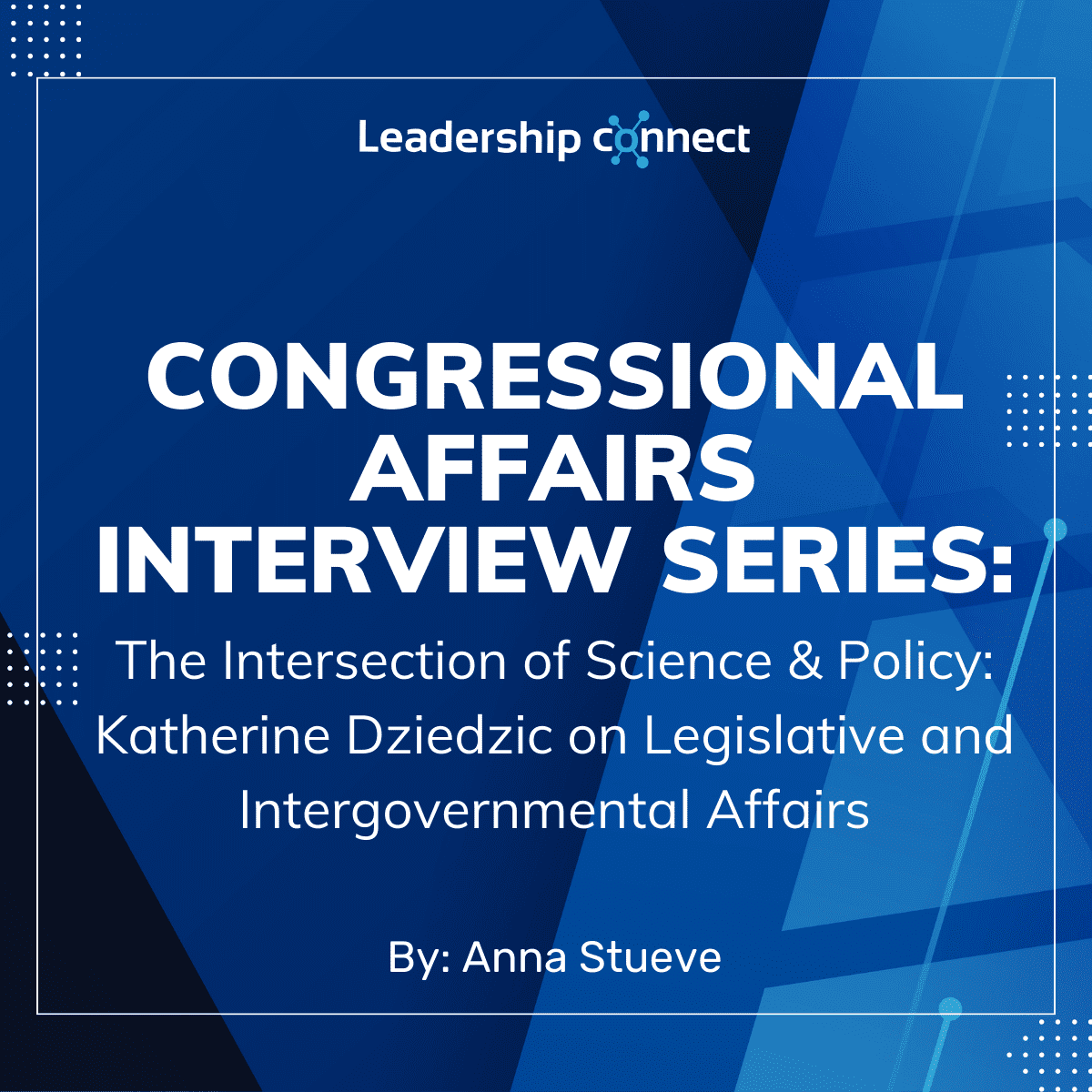Katherine Dziedzic, a dedicated marine scientist, and policy advocate within the National Oceanic and Atmospheric Administration’s Office of Legislative and Intergovernmental Affairs, dives into the agency’s profound impact on understanding and preserving delicate ecosystems. With a legacy stretching back decades, NOAA’s mission is deeply rooted in advancing our understanding of the natural world and mitigating the effects of climate change. As Katherine articulates, her journey from Chicago to Oregon and now Washington, DC reflects her commitment to merging scientific expertise with policy acumen. With firsthand experience in genetic/genomic research and a focus on coral reef thermal tolerance, she brings a unique perspective to the intersection of science and policy, emphasizing the importance of informed decision-making. Through her dedication, Katherine embodies NOAA’s commitment to scientific excellence and public service, driving positive change through her policy efforts.
Can you tell me about your career path that has led you to where you are now?
When I started graduate school, I knew I didn’t want to stay in academia. I wanted to apply the science and look at everyday problems, you know, take a scientific paper and not just leave it on the shelf but make it meaningful and part of the everyday conversation. I took a lot of policy courses, science policy courses, a couple law degree courses just to better understand environmental law, and some scientific communication training. I knew that’s where I wanted to go with my career. I applied to the Knauss Sea Grant, Marine Policy fellowship. I was a 2020 Knauss Fellow at NOAA, here in the Office of Legislative and Intergovernmental Affairs. I did my first year in the agency, I don’t know if you’re too familiar, but you can either be an executive fellow or a legislative fellow. If you’re a legislative fellow, you’re working on the Hill with a committee or a member office. If you’re an executive fellow you work with an agency, with NOAA. Most of them are with NOAA, but there’s a couple others at BOEM, State Department, things like that. I was torn between executive and legislative because I was interested in the policy, but I always knew I wanted to work in NOAA. I eventually chose the executive path for a couple of different reasons and eventually saw this position and I was like YES, that’s exactly what I want. Worked out well and I’ve been with the office ever since I started in 2020, then was able to convert to a federal employee. I cover the fisheries portfolio, I’m one of three specialists that cover the portfolio.
Which specific policy area or legislative issues are you most passionate about, and how do you stay informed and engaged in those areas?
My portfolio obviously is fisheries, specifically I cover international fisheries and the Office of Protected Resources. Regionally, I cover the West Coast and Pacific Islands. So, anything that falls under the Endangered Species Act and Marine Mammal Protection Act. Those two areas – international fisheries, everything to do with IUU fishing, has been such an interesting area for me to dig into. It’s a problem so many people want to solve and there’s been so much legislation trying to get to the root of the problem and solve the issue at a bunch of different levels; at the source, at the import stage, things like that. With my background being in coral reefs, I’ve always been interested in that topic both from the fisheries perspective and the broader Ocean Service which is another office in NOAA.
I stay engaged in several ways – I have developed great relationships with staff on the Hill, where we have a level of trust and good communication. That has really helped me understand what’s going on, what’s on the docket, what they would like to hear from us so they can shape the bill and make it helpful and not redundant. The relationships are really important. Also reading the news, reading through things like Leadership Connect and all the great resources you provide. From an internal perspective, making sure that we are communicating with the career staff, telling them what’s coming down the pipeline in terms of regulations or major agency decisions and communicate with them in a meaningful way. It’s a mix of being reactive and proactive; trying to be strategic about our communication but also making sure that I understand what’s going on in the agency to then communicate it out.
Congress.gov is such a great tool for legislation, all the different actions to understand which members are involved in which issue and where their priorities lie. I spend a good chunk of my time on Congress.gov looking at current bills but also historically, you know, how has this bill changed over time? How has a congressmember’s priority changed over time? And again, I can’t underscore relationships enough. It’s so integral to our job, getting the latest and greatest from staff directly, and making sure we’re inserting ourselves early enough.
What do you believe sets the federal government apart as a unique work environment, and how do you navigate its challenges in your everyday work?
I think it’s the level we’re operating at, right. We have such diverse programs, especially for NOAA. The way that our mission is so broad – it’s just amazing. I am still in awe of what NOAA does and how we do it all. I think the relationships we have, not only within our agency but within our department, is unique. It’s also some of the external relationships we need for our mission, we work with NASA, State Department, the Coast Guard, all these agencies that have a little bit of overlap. We help bolster each other, which I think is so unique and interesting – how we can be strategic together, especially with Congress and let them know that we’re sharing each other’s collective mission and collective announcement or whatnot.
The way we make decisions too, sometimes it takes longer to get things done but it’s so interesting to see how those decisions are made – a little bit political, but also at a career level. Learning how people think about information, the long-term and short-term impacts. But that comes with challenges. We need to make sure we’re dotting all the Is and crossing all the Ts before those decisions leave the agency. So, things can be a little bit slower, a little bureaucratic. I mentioned our relationships with congressional staff, we talk with them at various stages of decision-making to let them know where we are in the process and how we’re thinking about things, so those relationships come in handy. I try to be proactive and reactive – especially the proactive. We try to think strategically how we can insert different NGOs or Congress before it makes its way to the finish line.
Describe a challenging or rewarding project that significantly influenced your growth as a professional. How did you handle the challenge, and what did you learn from the experience?
Well, in 2020 I came in. I was a month and a half into the Fellowship here before we went into full telework for COVID. I had to learn everything about my job virtually, I had to meet and form relationships virtually and so, it was challenging as someone who is brand new to everything – to the legislative process, to the agency, and this kind of work. I was really nervous and anxious. I didn’t know if I was communicating things effectively or if I was representing the agency in the way I needed to be. I didn’t have that immediate feedback or people’s body language and that was tough for me. Same with networking – it was my year to network, to get my name out there and I just set up a lot of constant communications with Hill staff, a lot of meets and greets virtually. For some of the major players in my portfolio, I met with them on a bi-weekly basis to check in, see what was happening. That, to this day, has helped me keep those relationships going. Same with internally, I set up informal conversations or informational interviews to understand their role, job, and so that made me more confident in the end. It allowed me to meet all these different people at different levels in the agency so when we came back in person people knew who I was, and we could hit the ground running.
From a legislative perspective, it’s a regulatory agency so there are a lot of tough decisions that have to get made and sometimes can be controversial or very impactful to constituents. There are times when we don’t always agree with the legislation that’s coming out or vice versa. There’s been a couple of instances that were tough to navigate but being able to communicate made the situation diffuse, so to speak. There’s been a couple instances where I’ve been really proud to see something come to fruition in the end, even though it was a little bumpy to get there. So yeah, keeping that open line of communication and trying to get information out in a short timeline. It’s important to always be available, whether it be to answer clarifying questions internally or give them guidance and advice on how things will go on the Hill. Something I’ve found helpful is also acknowledging when I don’t have the information but being willing to go and get it for them, being honest and open in that way. Externally, helping them find the information they need to get them in front of folks and doing it in a timely manner. Sometimes things move quick on the Hill, but it’s not always the same in the Government. Trying to help bridge that communication with different time frames. That’s a huge part of the job.
What has made you successful in your role and what advice would you give to individuals who aspire to work in the Federal Government?
Put yourself out there – don’t be afraid to jump in, be willing to help, set up an informational interview with someone. You never know how that connection and relationship is going to pan out in the future. Don’t be afraid to say yes, if there’s an opportunity that comes your way and you’re unsure about it, being able to take that leap even though you may not be interested in it, it could help you down the road in some way whether is developing a certain skill set, or learning what you like and don’t like for your career trajectory. There are a lot of things that I did in my fellowship I wasn’t super interested in, but it helped me develop skills I still use to this day. Be a good communicator – both oral and written. It’s so important in this line of work. Anything you can do to hone those skills I think is really important. Have a positive attitude, this can be some challenging work from time to time. Our days are busy, our days are long and so having a positive attitude and being willing to help your colleagues goes such a long way – it’s very rewarding at the end of the day.
Word Association, what is the first word that comes to mind for each of there?
- Policy – Strategic
- Networking – Fun
- Writing skills – Important
- Federal Government – Big
- Leadership Connect – Super helpful, great resource






